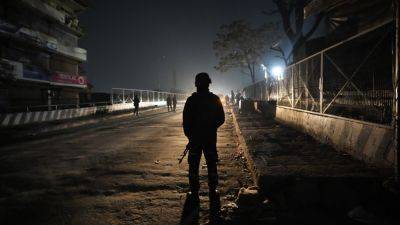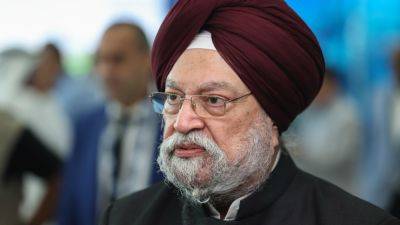Umar Khalid: Indian activist languishes in jail without bail or trial
In an interview in January 2020, Umar Khalid introduced himself as an "unemployed 32-year-old Indian", with a doctorate on indigenous people from a prestigious university.
"Ideologically, you could say, I'm a radical democrat. I believe in democracy, and I believe in democracy that is not limited until your voting," Mr Khalid told VICE Asia.
"It must come into practice in everyday life in a way you can voice your issues and concerns with democratic functioning."
Mr Khalid had already gained prominence in 2016 as one of five Indian students charged with sedition for organising a protest at his alma mater, Delhi's Jawaharlal Nehru University (JNU), over the 2013 hanging of a Kashmiri man.
He, along with another student, had surrendered to the police and had been granted bail months later. In 2022, the Supreme Court temporarily suspended the colonial sedition law, instructing the government to halt all trials until the law's validity was conclusively determined by the court.
Four years later, in September 2020, Mr Khalid was arrested again and accused of being a "key conspirator" in violent clashes in Delhi that killed 53 people, mostly Muslims. The February riots in the Indian capital occurred amid massive months-long protests against a contentious citizenship law.
Since then the activist has been languishing in a maximum security prison in the city. Mr Khalid, who was one of several students and activists held for the violence, has denied the charges against him. The 36-year-old says he only took part in a peaceful protest.
Two police cases were lodged against Mr Khalid. One case has been dropped, while in the other, he hasn't been charged in court yet, and the trial hasn't begun. Denied bail twice in the second case, he







